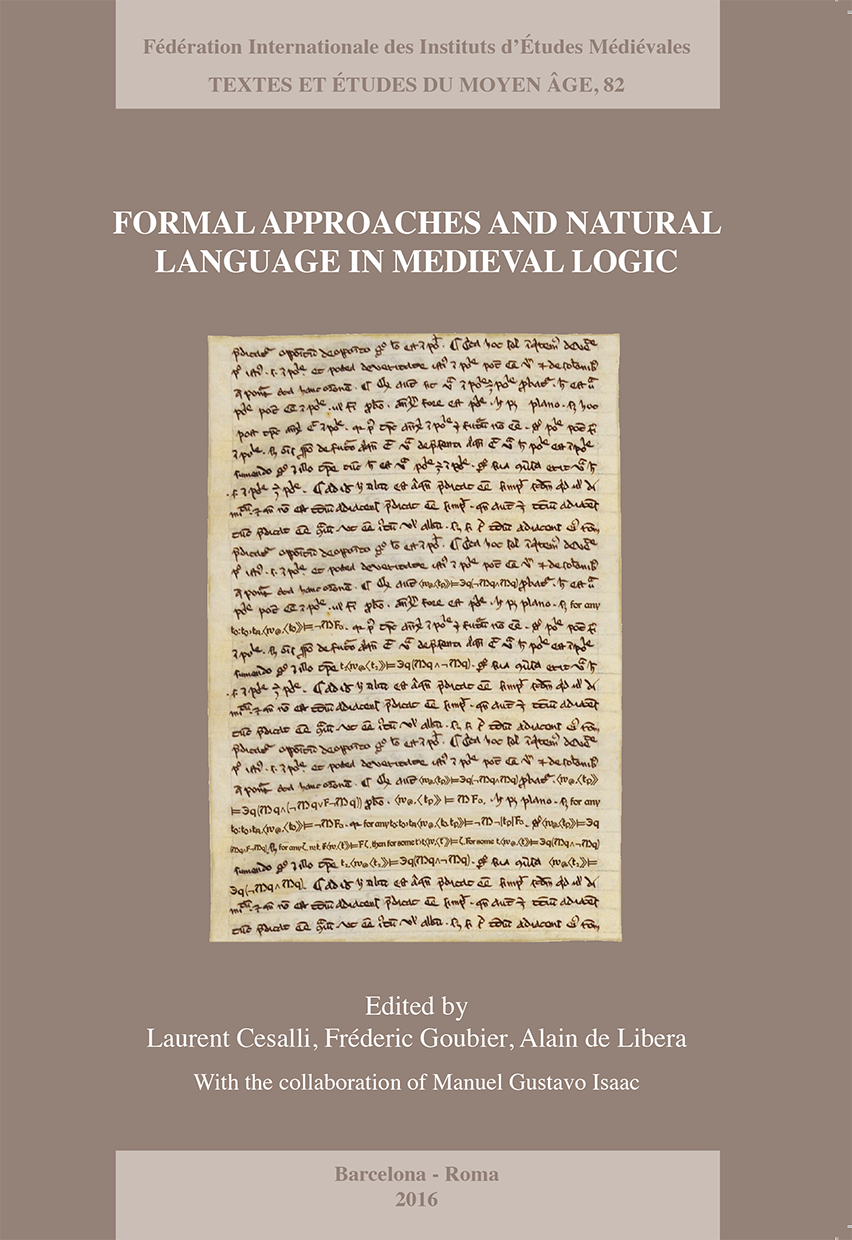Textes et Études du Moyen Âge
Volume 82

Cover image
Image based on f. 137ra of ms. Amiens, Bibliothèque municipale 406 (second half of the 13th century). Here, the author of the Opus puerorum, Petrus H., with the complicity of Paolo Natali , is struggling with the sophisma «impossibile est possibile»
Series Complete
Volume 61-80
Volume 41-60
Volume 21-40
Volume 1-20
Formal Approaches and Natural Language in Medieval Logic
Proceedings of the XIXth European Symposium of Medieval Logic and Semantics, Geneva, 12-16 June 2012
Edited by Laurent CESALLI, Frédéric GOUBIER, Alain DE LIBERA
with the collaboration of Manuel Gustavo ISAAC
Barcelona, Roma 2016; VIII + 538 p., 165 x 240 mm; ISBN 978-2-503-56735-8
The late medieval period is widely acknowledged as one of the most salient moments of the history of logic and emantics. It not only considered logic as a sine qua non condition for scientif c knowledge, it also begot highly ophisticated theories about both argumentation and language. The last f fty years of increasingly intense research have brought about an ever more detailed knowledge of these theories. And yet, the questions as to what kind of logic is medieval logic, whether and to what extent it corresponds to our conception of logic, and, even, what the nature of its object was, remain challenging. That it has a formal character is widely accepted; and its semantic components display remarkable aff nities with contemporary ones. But is it formal in the way modern logic is –or believes it is? Medieval logic does not really make recourse to symbolisms, after all, and the fact that the idea of formal validity might have been born in the twelfth century does not mean that developing formal approaches was an aim of medieval logicians. And what is its semantics a semantics of? Medieval logicians use Latin to deal with Latin constructions, but do these constructions belong to natural language or are they regimented to the point of forming some sort of ideal language?
The twenty-five papers gathered in this volume deal with these issues, thus allowing to reassess the broader questions of the formal character and formalising ambitions of medieval logic, as well as that of the natural character of the language in (and on) which it operated: in other words, they address the question of the nature, object and purpose of medieval logic.
